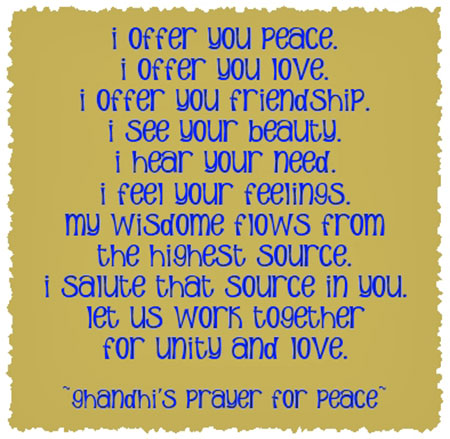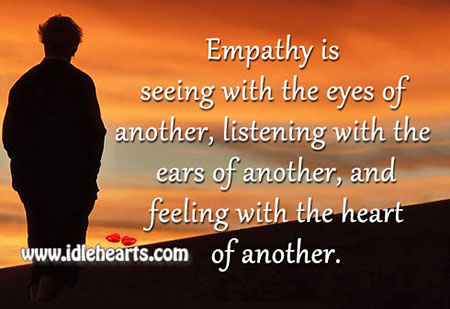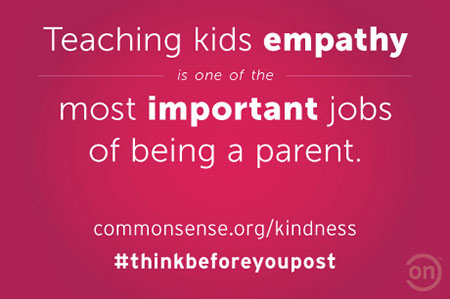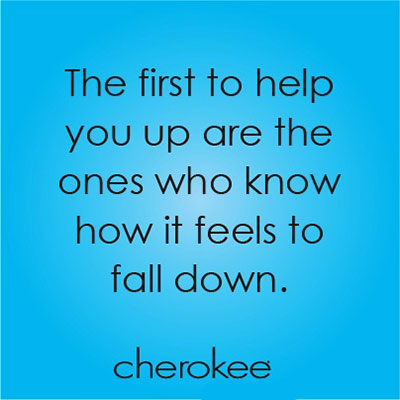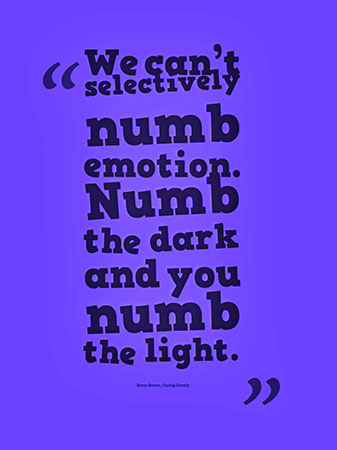|
If you answered, "yes" to any of these questions you may be an "empath."
Empaths are people who are highly sensitive to the energy and the emotions of the people, animals, and sometimes even the spiritual imprints that exist around them. Some are even sensitive to the energy of plants.
This extreme sensitivity applies to the familiar as well as the unfamiliar; people we are intimately close with and total strangers. We experience the world around us and feel what other people are feeling through our extraordinarily heightened senses and keen intuitions.
We often internalize the feelings of others without being aware we are doing it and interpret those feelings as being our own.
Just as with every other healthy minded individual, empaths have the ability to empathize with whom they are interacting. We are able to relate to how others feel and understand what they are experiencing.
What sets empaths apart is our higher-than-average level of empathy, the ease at which we can connect to the feelings of others, and the range within which we can do it. And where others experience feelings of empathy that are cued by interacting with others, empaths do not always.
We do not have to rely on the physical senses of sight, hearing, or touch, or clues from our interactions with others, to pick up on the emotions and energies around us. We can feel and internalize emotions from people near and far.
Crowded places such as shopping malls, supermarkets, stadiums or movie theaters can overwhelm the senses of the empath.
They may fill him with uncomfortable emotions, emotions that feel as if they are his own, picked up from the all the energies around him. Environments with depressive, low energy, such as nursing homes, assisted living facilities, and hospitals can cause feelings of depression, physical maladies, and fatigue in the empath.
Thrift stores, consignment shops, and antique stores, places that carry the residual energy of previous owners can be very draining for empaths as can used cars or pre-owned houses. I love antiques but I have had to stop frequenting those types of shops because they zap my already low energy, energy that may be constantly being depleted by the many pieces I already have in my home.
I am not willing to part with them so we will just have to find a way to live together.
Empaths are avid seekers of solutions, answers, and knowledge. We are deep thinkers and studiers. Believers that there is a solution for every problem, and uncomfortable and frustrated until we find it, empaths will tirelessly search until they are satisfied. Those who are spiritually connected will ask God or the universe for guidance and answers. Our gift allows us to tap into the spiritual realm and tune into its energies.
We frequently experience synchronicities, phenomena that occur in everyone's life, but because we are more connected than most people to the supernatural world we more easily recognize these coincidences as signposts of guidance.
Empaths have great interest in metaphysics.
Likely having experienced paranormal experiences of our own, whether it be near death experiences, out of body experiences, psychic ability, or a connection with those who have crossed over to the other side, we easily incorporate this unseen reality into our physical experience without question. We naturally know that these things are so without requiring any rational explanation.
With a natural ability to tap into Universal energy and heal others, empaths tend to gravitate toward work in the fields of holistic therapies and energy work.
Our sensitivity allows us to feel the emotions of others, influence their bodies and minds, and create harmony within them. In order to do that, empaths must learn ways to keep the energy of others from becoming their own. Otherwise the balance and harmony we create in others will cause unbalance and disharmony within us.
Empaths are usually non-violent and non-aggressive people who love peaceful and harmonious environments. Disharmony makes us uncomfortable. We will do everything we can to avoid it.
If and when we are confronted with turbulence we will take on the role of peacemaker and will work toward a resolution as quickly as possible. I have played the role of peacemaker with family and friends since I was a little child.
We are painfully sensitive to violence, cruelty, and tragedy, whether real or dramatically acted out. Watching it on the television, in the movies, or reading about anything that involves the physical or emotional suffering of another feels nearly unbearable. The suffering of people, children, or animals becomes our own suffering.
We fully identify with it and feel it.
There are many things I cannot watch on television without becoming extremely depressed, but the first one that comes to mind is Sarah McLachlan's ASPCA commercial about animal cruelty:
I quickly change the channel the second it comes on; otherwise I begin to internalize the suffering of the animals.
Empaths deeply connect to animals of all species. We resonate with their energies, love their pureness, and highly value their unconditional love. Empaths often prefer the company of animals over the company of humans, usually having a pet or pets of our own.
Many empaths become vegan or vegetarian because we can feel the vibrations of the animal that the meat came from when we eat it. We have a clear sense of the animal's fear and suffering. We don't understand why a beautiful animal does not have the same rights as humans do and must die.
I am a vegetarian who occasionally eats fish and seafood.
It is never a comfortable experience for me because I can't help thinking about the once beautiful living and breathing animal that was killed, maybe even suffered, and is now on my plate. I don't feel as if my right to eat it super cedes the animal's right to live.
Because empaths feel things so deeply and tend to be nurturing, we often work as volunteers who passionately dedicate their time to helping animals, children, others in need, or the environment. We are excellent listeners who are truly interested in the happiness and welfare of others.
Because of our natural ability to know things without being told, we can be a great asset to others because we tend to know where others are coming from.
But this knowing ability also makes it very difficult for others to lie to us, put on a facade, or hide their emotions. We just know the feelings and intentions of other people, even if we have just met them. We are also adept at reading body language and noticing subtle inflections of speech that others might miss.
Empaths require truthfulness in others and in their selves. We feel terribly uncomfortable with those we perceive to be lying to us, manipulating us, or acting phony. Because of the way it makes us feel we do not accept or tolerate that type of behavior from anyone, including ourselves. And where we are generally very tolerable people, we absolutely cannot tolerate unnecessary drama, egotistical behavior, or self-centeredness; especially that of narcissists.
We also cannot tolerate negativity in others, especially judgment and jealousy. Those attitudes immediately drain our energy.
We cannot lie to ourselves, nor can we pretend to enjoy things that we don't enjoy, whether it involves social activities or our work. Our work must feel meaningful to us or it will end up making us emotionally, spiritually, and physically unwell. Many empaths work in creative fields such as art, dance, writing, or music; expressive fields that feeds their souls and is vital to their well-beings.
We also cannot pretend to be happy when we're not, and unhappiness can take us over at any moment.
Because of the bombardment of overwhelming energies, negative and positive, empaths are highly prone to mood swings. We can be easy going and happy one minute and miserable the next without any logical transition. We may be the life of the party one minute and then quiet and reclusive the next. When we are miserable we can't hide it even if we want to.
It is written across our face for everyone to see.
One thing that makes us very unhappy is restrictions. Empaths are free spirits who must have their freedom of movement and expression.
We feel imprisoned by,
Many of our life experiences have been daring or adventurous - we have a great need to experience the true pulse of life, whether good or bad.
And having had these various life experiences we have knowledge on a wide range of topics.
This often makes us appear wise to others, though we are usually quiet about our achievements unless asked. We are more comfortable pointing out the achievements and attributes of others.
Empaths exude a deep level of warmth and compassion that draws others to them. Strangers sense that about us on a subconscious level and find themselves telling us private things about their lives. Before they realize what they have done they have poured out their heart to us. Animals bond to us very quickly for the same reasons.
Our deepest mutual connections are with those who those who are like us, those who get us, and those we can be expressive, open, and frank with. We can form lasting friendships with those who are not like us but it will always feel as if an element of the relationship missing.
Empaths have difficulty staying focused on things that do not stimulate their minds. We are daydreamers who get bored or distracted easily. When we are not stimulated our minds will go off to other places, sometimes even detach from the physical reality.
We live our lives in duality. Empaths physically exist in the dense, dark world filled with negativity and lower energy called Earth, but they mentally exist in the light, pure, high energy, optimistic world of spirit.
It is hard for us to stay grounded because we understand the freedom of the alternative world, but we must stay grounded because that is the way we all complete our Earthly missions.
December 26, 2013 from RandiGFine Website
Excerpted from my August 2, 2012 show on A Fine Time for Healing, "Is Our Ability to Empathize Eroding?"
Where Has Our Ability to Empathize Gone?
Empathy is the identification and
relationship that connects us as human beings.
We show empathy through a hug, a reassuring touch, and even through a "high five" when our empathy relates to someone's success.
There are many theories concerning the nature versus nurture aspect
of empathic development. Are some people born virtuous and some
people born evil?
Likewise, a study at Berkeley concluded that a particular variant of the oxytocin receptor gene is associated with the trait of human empathy. In the study, those who had this gene variant were found to have a more empathic nature.
Dr. Zak says that this study
demonstrates that some people, about five percent of our population,
may have a gene variant that makes them less empathic. In other
words, he says, some people are more or less immune to oxytocin.
Sincere empathetic behavior develops in children whose parents constantly show, teach, and reinforce it.
It is a gradual emergence that occurs with the
consistency and caring shown to them during the formative years of
their social and emotional development. In many cases, but not all,
adults who lack empathy have been victims of childhood abuse or
neglect.
Their underdeveloped coping skills leave them saddled with distress, whether their own or others, and their lack of ability to experience their own pain prevents them from feeling the pain of others.
As adults their elaborately built defense mechanisms block guilt and shame while also blocking their conscience.
They live life through fear, threats, punishment, and isolation rather than empathy and kindness.
Their internal pain and suffering is triggered when they see others in pain and suffering, therefore become preoccupied with everyone else's pain and make it their own. I did that for most of my life.
Often it was to deflect my own pain but ironically it caused me to suffer more. I had very poor coping skills and my boundaries were out of whack if existent at all.
I also modeled the behavior I
observed as a child.
The sharpest drop occurred in the last nine years.
The study includes data from over 14,000 students.
According to lead researchers, it is harder for today's college student to empathize with others because so much of their social interactions are done through a computer or cell phone and not through real life interaction.
With
their friends online they can pick and choose who they will respond
to and who they will tune out. That is more than likely to carry
over into real life.
This may partly explain the numbing of this
generation.
Lasch links the prevalence of narcissism in our society to the decline of the family unit, loss of core values, and long-term social disintegration in the twentieth century.
He believed that the liberal, utopian lifestyle of the 60's gave way to a search for personal growth in the 70's.
But people were
unsuccessful in their attempts to find their selves. So a movement
began to build a society that celebrated self-expression,
self-esteem, and self-love. That's all well and good, or so it
seems, but as a result of the "me" focus, more narcissism was
inadvertently created. It all backfired - aggression, materialism,
lack of caring for others, and shallow values have been the result.
Where has our appreciation for quality literature as a society gone to? And what has happened to our legal system?
It has been demonstrated
time and time again that the rights of the innocent take a back seat
to the rights of the offender. Our laws do very little to control
criminals. In fact, it seems as if criminals control the law. If
ever an empathy disorder could spur unthinkable violence to erupt in
a seemingly normal person, now is the time.
He was curious as to why some people lack empathy in their dealings with others.
His book Zero Degrees of Empathy - A New Theory of Human Cruelty is an expose of his opinions, personal experiences, and findings.
The object of the book is to
present a way of understanding why people do bad things. Through his
book he explains away the intangible concept of evil and explores a
more explainable theory - the theory that there are levels of empathy
and they lie within a spectrum.
The questionnaire uses 5-point
scales (A = does not describe me well to E = describes me very
well). This scale is used to evaluate a person's perspective of his
or herself.
The first category is Fantasy, as in the statement,
The second category is Perspective-taking, as in the statement,
The third category is empathetic concern, as in the statement,
And the fourth category is personal distress, as in the statement,
Since empathy begins with awareness of another person's feelings and receptiveness to the subtle cues that others give off, which happen to be abilities that women are naturally adept at, females generally score higher on these types of tests.
These people are not typically a threat to society. But there are also those who are completely devoid of empathy. These are the people that are dangers to our society.
They are ticking time bombs that may explode at any time.
|

